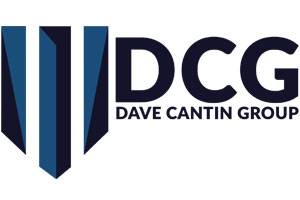Thinking of Selling This Year? Make Sure You’re Seeing the Big Picture Now: Dave Cantin Opens Up About Pitfalls to Avoid When Selling Your Dealership
NEW YORK, New York – January 13, 2020- When you’ve been a business owner for many years, it becomes difficult to imagine life without it. Your dealership is a huge part of your life, but you know that the time will come when it makes sense to exit the business. Whether you want to retire or just sell your business this year, the process can be complicated. Because of the different assets a dealership holds and its relationships with manufacturers, this is no ordinary transaction.
“There are many moving parts to selling a dealership,” says Dave Cantin, CEO of Dave Cantin Group (DCG). “As with any transaction, there will be surprises or snags. Anticipating the potential pitfalls hidden in the selling process will help you be prepared when they happen.”
Selling your business can generate many questions. How do you ensure you get what your business is worth? Do you want to sell the whole dealership, or retain some equity? Will your manufacturer be on board? Are you guaranteed to have a confidential transaction? Are you prepared for the time the transaction could take? Should you hire a firm to help you through the process?
Dave and his team have created a list of 5 pitfalls to be aware of in order to make the most of selling your dealership. While the process may not be simple, this list will help you prepare for complications that may arise:
1. Not Knowing Your Worth- You have worked for years to build a brand, a reputation, and a business. While these things may be priceless, knowing the valuation of your dealership is critical in the selling process. Determining the value of a dealership is a complex process. With industry-specific terminology, dealer financial statements, and multiple valuation approaches, this is more than a standard business valuation. Blue Sky Values and Blue Sky Multiples vary from year to year, making it difficult to provide a ballpark figure. Dealer Financial Statements are necessary because they provide much more detailed information relating to the operations of the dealership. Will your dealership valuation be based on the market, assets, income, or a hybrid? Don’t forget about the normalizing adjustments- inventory, rent, working capital, and other items must be included to provide an accurate dealership valuation.
2. Being Unaware of Equity Options- While your dealership is a huge part of your identity, you may not be able to continue with operations as they are. Maybe you don’t want to sell the entire dealership, but would like to merge with another dealer to create a business partnership. Determine how much equity you would like to maintain in your business, whether it’s 10%, 25% or none at all. Then you will be able to find a buyer who is best suited to your needs.
3. Not Having a Manufacturer on Board- You have determined the valuation of your dealership and you’re ready to sell, but have you talked with the manufacturer to see if they are on board with the transaction? Manufacturers have a “first right of refusal”, giving them the ability to shut the transaction down if they do not see it as a good financial move. Ensuring your manufacturer is aware of your intentions is a crucial part of the transaction process.
4. Allowing the Sale to be Common Knowledge- In the sale of a dealership, discretion is extremely important. However, because the dealership community is so close-knit, knowledge of your intention to sell can get around quickly. Once this information gets around the marketplace, it can result in employees scrambling to plan their own exit. This is why it’s critical to have the utmost discretion during the sale.
5. Trying to Go it Alone- With so many elements involved in the sale of a dealership, are you sure you can keep up with it all on your own? Finding a buyer that is manufacturer-approved, making sure you know the true value of your business, and ensuring the confidentiality of your sale are gargantuan tasks. Add in all of the necessary legal and financial undertakings that must happen and the process can be completely overwhelming. “It’s ok to ask for help,” says Cantin. “Find a trusted partner in the automotive M&A business to not only simplify the process, but make sure the transaction is operated with complete integrity.”
Selling your dealership is one of the more difficult parts of being a business owner. “This is your livelihood. Your blood, sweat and tears. DCG understands that this dealership is part of your legacy, assures Cantin. “We utilize industry-wide relationships, financial reporting, and forensic accounting to help every aspect of the deal run smoothly, from capital to legal and everything in between.”
While it is important to anticipate potential issues and perform due-diligence early to help mitigate any complications that may arise, working with an automotive M&A professional will help you get the most out of the transaction. Cantin insists, “Working with DCG provides you with a sense of security that your business is being handled with the care it deserves.”
###
About Dave Cantin Group
Dave Cantin Group (DCG) is a full-service M&A firm that manages the sale and purchase of automotive dealerships throughout the United States. With over $11.5 billion in collective dealer acquisitions and $3 billion in dealership listings, DCG is one of the world’s largest automotive dealership M&A firms. Dave Cantin personally has helped raise more than $150 million in the fight against pediatric cancer, and DCG is committed to donating a percentage of its revenue to the cause. DCG is headquartered in New York with regional offices in California, Florida, Illinois, New York, and Texas.
Media Contact:
Sarah Griffin
sgriffin@percepture.com





